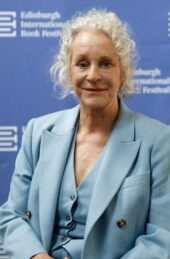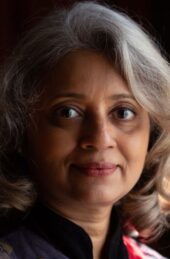Thomas Waugh, could you introduce yourself?
Thomas Waugh is a pseudonym I use for writing modern thrillers. I usually write under my own name for historical fiction. As Thomas Waugh, I have now released four novels, including Gun For Hire, Enough Is Enough and Blood For Blood. The books are largely set in London and, in some regards, are a product of the crime and thriller authors I have enjoyed reading over the years, including le Carré, Graham Greene, Mick Herron and Lee Child. The hero of the latest novel, Daniel Ambler, is also a reference to Eric Ambler. Duty Calls also has various nods towards Graham Greene and his “entertainments”.
Could you tell us a little about the background of your book and what inspired you to write a spy novel?
After writing a couple of crime novels, featuring the ex-soldier James Marshal, I wanted to write a spy thriller featuring a novelist as a hero. I suppose I was partly inspired by The Russia House, by le Carré, who skilfully blended the worlds of publishing and espionage together. I have written historical novels which have featured spies, so it wasn’t such a leap to write a contemporary story involving espionage. There have been plenty of writers who have read the book and have enjoyed the depiction of the book trade in the story. I wanted to pull back the curtain on the life of an author.
I came up with the initial premise for the book before the start of Russia’s invasion of the Ukraine, so the novel is set in 2021.
Although a novelist, I wanted Daniel Ambler to serve as an everyman (albeit one who is perhaps more cynical and world-wearier than most). Ambler is a divorcee, still in love with his ex-wife. He is a lapsed Catholic, trying to atone for his sins.
As a bridge between the two series, I was keen to feature James Marshal in the story, to furnish the narrative with some action. Ambler, like Thomas Waugh, is not the bravest novelist in the world.
What do you think is the most challenging aspect of writing a novel set in the world of international spies?
The honest answer is, I don’t know. Thankfully, I have read a wealth of spy thrillers over the years. I have come across a few people in the trade who also furnished me with some information and inspiration. One must walk a tightrope between being believable – whilst at the same time providing a sense of escapism for the reader.
Your protagonist, Daniel Ambler, is a spy novelist. How did you come up with the idea of involving the character of a writer in the (to him) ‘real’ world of spies? And what’s his take on the ‘Second Cold War’?
The book, due to the plot device of having a spy novelist become a spy, isn’t short on irony or humour. Ambler’s familiarity with spies and spying allows him to take to his “mission” with more efficacy than most. There is also the fact that one should write what one knows – and I know the world of publishing. There will be readers who will be more shocked by the revelations concerning the world of publishing – rather than espionage – in the story.
Although Ambler is a fan of Russian literature, he is understandably no fan of Putin and his regime. He touches upon the argument that the first Cold War didn’t really end (especially for members of the KGB, like Putin). The Soviet Union, for all of its anti-imperialist rhetoric, was a Soviet Empire. The Cold War certainly heated up again, even before the invasion of the Ukraine. The book isn’t kind to Marxists. Their lack of a sense of humour isn’t their only crime. The current enemy is the old enemy, it seems, for the security services.
Could you tell us a little about your next work in progress?
The next book will be the follow-up to Duty Calls, featuring Daniel Ambler. It will be a spy thriller, set during a Graham Greene conference. Again, I want to have fun with the worlds of publishing and spying. The working title is Eastern Approaches. Fingers crossed the novel will be available by the end of the year.
Can you recommend to our readers any other writers, fiction or non-fiction, who deal with espionage?
In terms of non-fiction I am going to be predictable and recommend Ben Macintyre. Operation Mincemeat, A Spy Amongst Friends, Agent Zig Zag and The Spy and the Traitor are all modern classics. Checkmate in Berlin, by Giles Milton, is one of the most enjoyable history books I have read over the past couple of years too. I have namechecked some famous novelists above, but I would be remiss if I did not recommend some Aspects of History authors, among others. Alex Gerlis, Mark Ellis, Peter Tonkin, Henry Porter and Alan Judd are all worth checking out too.
Thomas Waugh is the author of Duty Calls, published by Sharpe Books.







